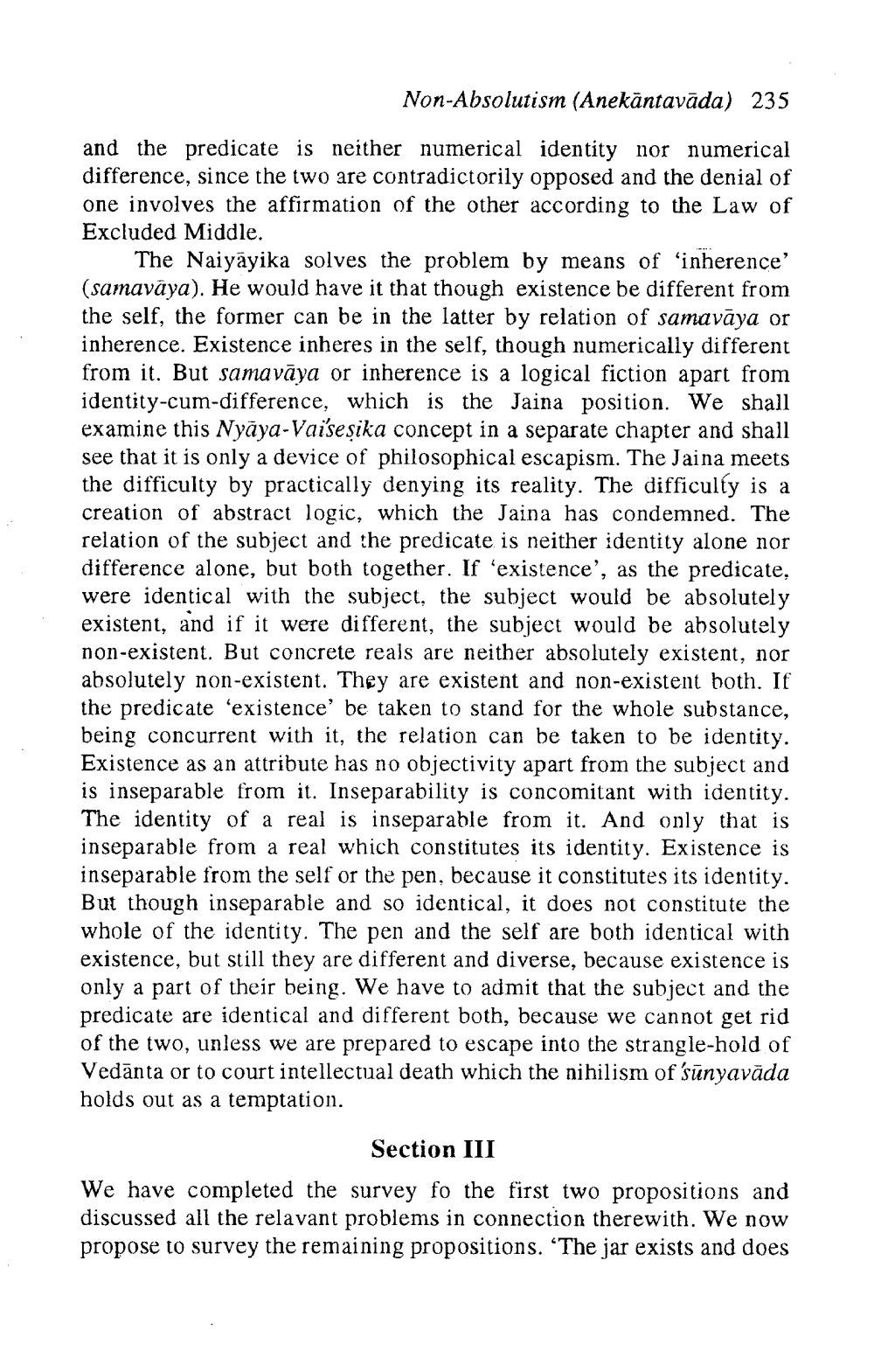________________
Non-Absolutism (Anekāntavāda) 235
and the predicate is neither numerical identity nor numerical difference, since the two are contradictorily opposed and the denial of one involves the affirmation of the other according to the Law of Excluded Middle.
The Naiyāyika solves the problem by means of `inherence' (samavāya). He would have it that though existence be different from the self, the former can be in the latter by relation of samavāya or inherence. Existence inheres in the self, though numerically different from it. But samavāya or inherence is a logical fiction apart from identity-cum-difference, which is the Jaina position. We shall examine this Nyāya-Vaiseșika concept in a separate chapter and shall see that it is only a device of philosophical escapism. The Jaina meets the difficulty by practically denying its reality. The difficulty is a creation of abstract logic, which the Jaina has condemned. The relation of the subject and the predicate is neither identity alone nor difference alone, but both together. If 'existence', as the predicate, were identical with the subject, the subject would be absolutely existent, and if it were different, the subject would be absolutely non-existent. But concrete reals are neither absolutely existent, nor absolutely non-existent. They are existent and non-existent both. If the predicate 'existence' be taken to stand for the whole substance, being concurrent with it, the relation can be taken to be identity. Existence as an attribute has no objectivity apart from the subject and is inseparable from it. Inseparability is concomitant with identity. The identity of a real is inseparable from it. And only that is inseparable from a real which constitutes its identity. Existence is inseparable from the self or the pen, because it constitutes its identity. But though inseparable and so identical, it does not constitute the whole of the identity. The pen and the self are both identical with existence, but still they are different and diverse, because existence is only a part of their being. We have to admit that the subject and the predicate are identical and different both, because we cannot get rid of the two, unless we are prepared to escape into the strangle-hold of Vedānta or to court intellectual death which the nihilism of sūnyavāda holds out as a temptation.
Section III We have completed the survey fo the first two propositions and discussed all the relavant problems in connection therewith. We now propose to survey the remaining propositions. “The jar exists and does




